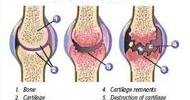Migraines are a type of headache in which the nerves and blood vessels (neurovascular) are affected. Migraine with aura and migraine without aura are the two most prevalent kinds of migraine. Hormonal changes aren’t the only thing that might cause migraine headaches during pregnancy.
The majority of women are affected by a mix of factors. Stress skipped meals, and a lack of sleep, for example, can all cause a migraine. Women who experience severe acute migraine attacks that require medical attention are more likely to have difficulties during childbirth, such as premature delivery, preeclampsia, and low birth weight.
These problems were seven times more prevalent in women aged 35 and up. These findings, which were done by Montefiore Health System researchers, will be presented at the American Academy of Neurology’s 68th Annual Meeting, which will take place from April 15 to 21.
“The results of this study were of particular interest because more than half of the pregnant women with migraine experienced some type of adverse birth outcome, suggesting that these pregnancies should be considered high risk,” said study author Matthew S. Robbins, M.D., director of inpatient services at Montefiore Headache Center, chief of neurology at Jack D. Weiler Hospital of Montefiore, and associate professor of clinical neurology at Albert Einstein College of Medicine.
“These findings need to be replicated with a larger number of women, including those who have migraine that does not manifest with severe attacks during pregnancy.”
Acute migraine attacks are debilitating headaches that can involve sensitivity to light and sound, nausea, vomiting, and visual abnormalities. Pregnant women must be extremely cautious about what they put into their systems, and most migraine drugs are no exception.
The results of this study were of particular interest because more than half of the pregnant women with migraine experienced some type of adverse birth outcome, suggesting that these pregnancies should be considered high risk. These findings need to be replicated with a larger number of women, including those who have migraine that does not manifest with severe attacks during pregnancy.
Matthew S. Robbins
Women who are pregnant and taking migraine medication should contact their doctor as soon as they find out they’re expecting. Researchers examined data from Montefiore for five years and discovered 90 women with severe migraine who sought emergency care while pregnant. The findings included:
- More than half of these women (54 percent) had at least one complication.
- Preterm birth occurred in about 30% of the women, compared to approximately 10% in the general population.
- Preeclampsia, a disorder characterized by elevated blood pressure, was found in almost 20% of migraine sufferers, compared to 5–8% in the general population.
- Compared to 8% in the general community, 19% of migraine sufferers gave birth to babies who were underweight.
Many anti-migraine drugs that are used to treat or prevent migraine headaches and symptoms should be avoided while pregnant. Some have been connected to the development of birth abnormalities in children. Other drugs have been linked to difficulties during pregnancy.
The majority of migraine sufferers, 62 percent, were treated with a combination of oral and intravenous (IV) medications. 76 percent were given acetaminophen, 54 percent were given IV metoclopramide, an antihistamine, and 54 percent were given IV diphenhydramine, an antihistamine. It’s unclear how the drugs influenced the study’s outcomes.
Breastfeeding has many advantages for both newborns and their mothers, but one of the more surprising benefits is that it can help women who suffer from migraines. Breastfeeding can help reduce the frequency of migraine attacks in women by preventing estrogen levels from falling after a woman gives birth.
















